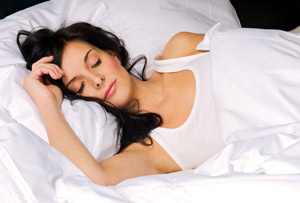You spend one third of your life in bed. Therefore, the right bed can improve or prevent back pain. Furthermore, if you cannot rest properly and sleep well, you can hinder your recovery rate.
 Many people believe that the harder the mattress, the better it is for your back. However, this myth is not true. A firm supportive mattress that follows the curvature of your spine is the best for the back. If the bed is too hard, it can actually increase back pain by causing pressure at your pressure points (buttock and midback) and by not supporting the lower back and shoulder regions. Take the following advise next time you shop for a new mattress.
Many people believe that the harder the mattress, the better it is for your back. However, this myth is not true. A firm supportive mattress that follows the curvature of your spine is the best for the back. If the bed is too hard, it can actually increase back pain by causing pressure at your pressure points (buttock and midback) and by not supporting the lower back and shoulder regions. Take the following advise next time you shop for a new mattress.
- The firmness of the bed should be proportional to your weight, i.e. if you are light, a moderately firm bed; if you are heavy, an extra firm bed.
- Lie on each bed you are considering in your normal sleep position for a minimun of 5-10 minutes to see how it feels.
- If the mattress says “orthopaedic” it generally means ext firm.
- Buy as big as bed as possible.
- Check the bed height – ensure you can get in and out of the bed without pain or discomfort.
- In addition to he bed, use a cervical pillow to ensure your neck and head are also well supported.
It is also important to adopt a sleeping postion that would create less physical stress on the back; either sleep on your back with a big pillow underneath your knees or sleep on ypour side with a pillow between your knees.
Many of my patients ask me how do they know if their morning back stiffness is due to their beds. My advise to them is put a foam pad and comforters on the floor and try to sleep on it for a few nights. If your back feels better, then it is time to change your bed.
Dr Kenny Chan

